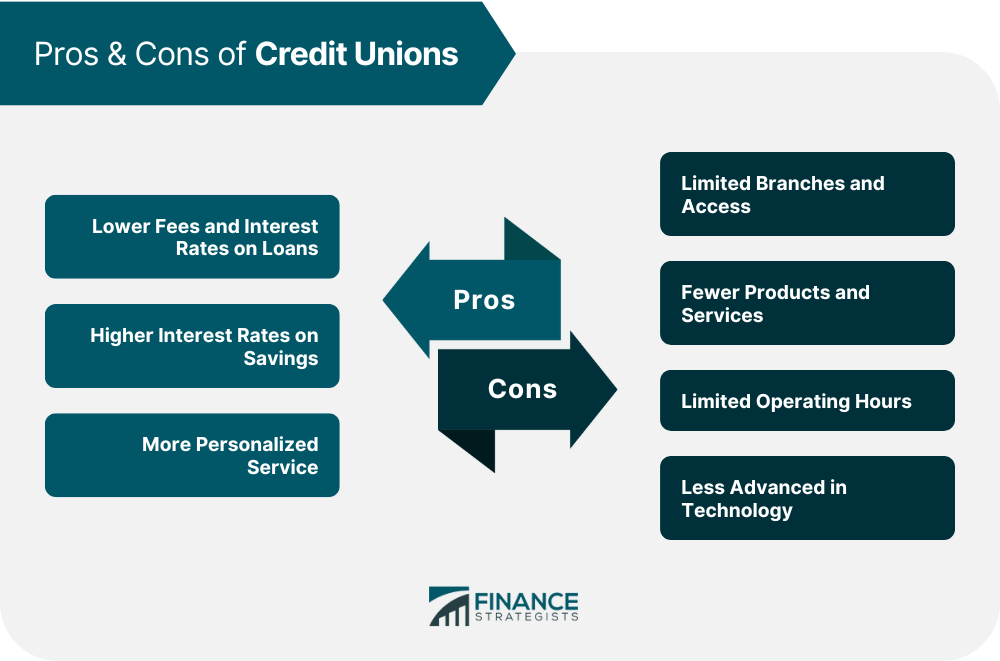Wyoming Credit Union: Trusted Financial Solutions for every single Need
Wyoming Credit Union: Trusted Financial Solutions for every single Need
Blog Article
The Ultimate Overview to Understanding Credit Unions

Credit history unions stand as one-of-a-kind monetary entities, rooted in concepts of common support and member-driven operations. As we navigate with the complexities of credit unions, an insightful journey awaits to drop light on these member-focused establishments and how they differ from traditional banks.
What Are Debt Unions?
Credit report unions are member-owned economic establishments that supply a range of banking solutions to their members. Unlike traditional banks, lending institution operate as not-for-profit organizations, implying their main focus is on offering their participants instead than making the most of profits. Members of a lending institution typically share a common bond, such as helping the same company, belonging to the same community, or becoming part of the same company.
One of the key advantages of cooperative credit union is that they commonly use higher rates of interest on cost savings accounts and reduced rate of interest on loans compared to financial institutions. Credit Union in Wyoming. This is because lending institution are structured to benefit their members straight, allowing them to hand down their incomes in the type of much better rates and fewer charges. In addition, cooperative credit union are known for their customized client service, as they focus on building connections with their members to comprehend their special monetary requirements and goals
History and Development of Credit Unions
The origins of member-owned financial cooperatives, understood today as cooperative credit union, trace back to a time when areas sought options to conventional banking institutions. The concept of lending institution come from the 19th century in Europe, with Friedrich Wilhelm Raiffeisen frequently credited as the pioneer of the cooperative financial movement. Raiffeisen started the initial identified credit scores union in Germany in the mid-1800s, emphasizing area support and self-help concepts.
The development of cooperative credit union continued in The United States and Canada, where Alphonse Desjardins developed the first cooperative credit union in Canada in 1900. Shortly after, in 1909, the initial U.S. lending institution was formed in New Hampshire by a group of Franco-American immigrants. These early lending institution operated the basic principles of common help, democratic control, and member possession.
With time, debt unions have expanded in appeal worldwide due to their not-for-profit structure, emphasis on offering members, and using competitive monetary items and solutions. Today, cooperative credit union play an important function in the economic industry, offering community-oriented and accessible financial alternatives for services and people alike.

Membership and Qualification Standards
Subscription at a credit report union is usually limited to individuals satisfying particular eligibility criteria based on the institution's starting principles and regulatory needs. Some credit rating unions might only more offer people who function or live in a specific area, while others may be tailored to staff members of a particular business or members of a particular organization.
In addition, cooperative credit union are structured as not-for-profit organizations, suggesting that their key goal is to serve their participants instead of generate earnings for shareholders. This emphasis on participant service frequently translates right into more personalized focus, lower charges, and competitive rates of interest on financial savings and fundings accounts. By meeting the qualification criteria and becoming a member of a cooperative credit union, people can access a range of economic products and services tailored to their certain needs.
Solutions and Products Supplied
One of the key facets that establishes credit unions apart is the diverse range of monetary solutions and items they use to their participants. Debt unions generally offer standard banking services such as financial savings and examining accounts, financings, and credit rating cards.
Furthermore, cooperative credit union usually give practical online and mobile banking alternatives for members to quickly handle their financial resources. They may provide rewards such as common branching, enabling participants to access their accounts at other credit scores unions throughout the nation. Some cooperative credit union also supply insurance products like life, automobile, and home insurance policy to help participants safeguard their possessions and loved go to my blog ones.

Benefits of Banking With Lending Institution
When taking into consideration monetary organizations, checking out the advantages of financial with credit scores unions reveals one-of-a-kind advantages for members seeking tailored service and competitive prices. Unlike large financial institutions, credit scores unions are member-owned and prioritize structure strong relationships with their participants. In general, financial with a credit score union can give an extra personalized, economical, and member-centric economic experience.
Verdict
In conclusion, credit scores unions stand out as member-owned monetary organizations that focus on serving their participants over maximizing profits. With origins dating back to 19th century Europe, credit report unions adhere to concepts of common aid and member possession.
Debt unions are member-owned financial institutions that provide an array of financial services to their participants. The principle of credit report unions stem in the 19th century in Europe, with Friedrich Wilhelm Raiffeisen often credited as the leader of the cooperative banking activity.The advancement of credit rating unions continued in North America, where Alphonse Desjardins developed the very first credit history union in Canada in 1900. Credit report unions normally offer traditional financial services such as visit site cost savings and checking accounts, car loans, and credit history cards.When considering economic organizations, exploring the benefits of financial with credit report unions reveals one-of-a-kind benefits for participants seeking individualized service and affordable rates.
Report this page